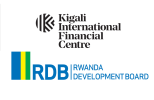Challenges and Opportunities in Nigeria’s Development
Nigeria, Africa’s most populous nation, is a land of vast potential and significant challenges.
Its development journey is a complex tapestry woven with threads of opportunity and adversity.

Technological innovations are reshaping Nigeria’s socio-economic landscape, offering new avenues for growth. Yet, the path to progress is not without obstacles.
Education reform, for instance, is a critical component of Nigeria’s development. It holds the promise of empowering the nation’s youth, but its implementation faces numerous hurdles.
This article delves into the intricacies of Nigeria’s development, exploring both the challenges and opportunities that lie ahead.
Whether you’re a policy maker, investor, educator, or simply interested in Nigeria’s growth, this analysis will provide valuable insights.
Nigeria’s Current Development Landscape
Nigeria’s development landscape is a dynamic one, marked by both progress and setbacks.
The nation boasts a diverse economy, with sectors such as agriculture, oil and gas, and services contributing significantly to its GDP.

However, despite its economic diversity, Nigeria grapples with issues such as poverty and unemployment. These challenges underscore the need for inclusive growth strategies that benefit all Nigerians.
Technological innovations and digital literacy are increasingly becoming vital tools in Nigeria’s development. They offer potential solutions to some of the country’s most pressing challenges, such as access to quality education and healthcare.
Yet, the road to a fully digital Nigeria is fraught with obstacles, including inadequate infrastructure and a lack of digital skills among the population. These issues highlight the need for comprehensive strategies that address the various facets of Nigeria’s development.
Technological Innovations as a Catalyst for Growth
Technological innovations are playing a crucial role in Nigeria’s development. They are transforming various sectors, from agriculture to healthcare, and creating new opportunities for growth.
For instance, in agriculture, digital platforms are connecting farmers to markets, providing weather updates, and offering advice on crop management. These innovations are enhancing productivity and improving livelihoods.

In the healthcare sector, telemedicine and digital health records are improving access to quality care, especially in remote areas.
Here are a few examples of technological innovations in Nigeria:
- Farmcrowdy: A digital platform connecting farmers with investors.
- LifeBank: A health tech startup that delivers blood and other essential medical supplies to hospitals.
- uLesson: An edtech startup providing affordable, high-quality education content to students.
These examples illustrate the transformative power of technology in driving Nigeria’s development.
Education Reform and Socio-Economic Development
Education reform is a key driver of socio-economic development in Nigeria. It equips the population with the skills needed to drive economic growth and social progress.
For instance, the introduction of digital literacy in school curriculums is preparing students for the digital economy. It’s also fostering a culture of innovation and entrepreneurship among the youth.

However, challenges such as inadequate funding, outdated curriculums, and teacher shortages are hindering progress.
Here are a few initiatives addressing these challenges:
- Teach for Nigeria: A program recruiting outstanding graduates to teach in underserved schools.
- Bridge International Academies: A network of low-cost private schools providing quality education to children in low-income communities.
- Oando Foundation: An organization improving learning outcomes in public primary schools through teacher training and infrastructure development.
These initiatives are contributing to education reform and, by extension, Nigeria’s development.
Political and Governance Challenges Impacting Development
Political instability and governance issues are major challenges to Nigeria’s development. Frequent changes in government often lead to policy inconsistency, affecting long-term development plans.
Corruption is another significant issue. It hampers the effective use of resources, undermines trust in public institutions, and discourages investment.
Moreover, managing Nigeria’s diverse ethnic and religious groups is a complex task. It often leads to conflicts that disrupt social harmony and economic activities. Addressing these challenges is crucial for Nigeria’s development.
Infrastructure Development: A Foundation for Progress
Infrastructure development plays a pivotal role in Nigeria’s growth. Good infrastructure boosts economic activities, facilitates trade, and improves the quality of life.
However, Nigeria faces a significant infrastructure deficit. This includes inadequate power supply, poor road networks, and limited access to clean water and sanitation facilities. These challenges hinder economic growth and social development.
Investment in infrastructure development, therefore, presents a significant opportunity. It can drive economic growth, create jobs, and improve living standards.
“
Investment Opportunities in Nigeria’s Economy
Nigeria’s economy offers a wealth of investment opportunities. These span across various sectors such as agriculture, manufacturing, and services.
The country’s large population provides a vast market for goods and services. Additionally, the government’s efforts to diversify the economy have opened up new investment avenues.
However, potential investors must navigate challenges such as regulatory uncertainties and infrastructure deficits. Despite these, the rewards of investing in Nigeria’s economy can be substantial.
“
The Role of Government in Nigeria’s Development
The government plays a crucial role in Nigeria’s development. It sets policies that can either facilitate or hinder growth.
For instance, policies promoting transparency and accountability can attract foreign investments. Conversely, corruption and poor governance can deter investors and stifle development.
Therefore, the government’s role in shaping Nigeria’s development trajectory cannot be overstated. It is pivotal in creating an enabling environment for growth and development.
Natural Resources and Economic Prospects
Nigeria is endowed with abundant natural resources. These include oil, gas, and a variety of minerals, which have significant economic potential.
However, the challenge lies in effectively managing these resources. This is crucial for sustainable development and for avoiding the pitfalls of over-reliance on resource exports.
Harnessing the Potential of Nigeria’s Youth
Nigeria boasts a youthful population, a potential asset for development. With the right investment in education and skills training, this demographic could drive innovation and economic growth.
However, the challenge is to create enough quality jobs. This is crucial to prevent youth unemployment and underemployment, which can lead to social instability.
Sustainable Development and Environmental Conservation
Sustainable development is a key aspect of Nigeria’s growth strategy. It involves balancing economic growth with environmental conservation to ensure long-term viability.
However, issues like deforestation and pollution pose challenges. Effective policies and public awareness are needed to address these environmental concerns.
Conclusion: Balancing Challenges with Opportunities
In conclusion, Nigeria’s development journey is marked by both challenges and opportunities. The nation’s potential is vast, but realizing it requires addressing complex issues.
From technological innovation to education reform, the path to progress is multifaceted. With strategic planning and execution, Nigeria can overcome its challenges and harness its opportunities for sustainable development.













































